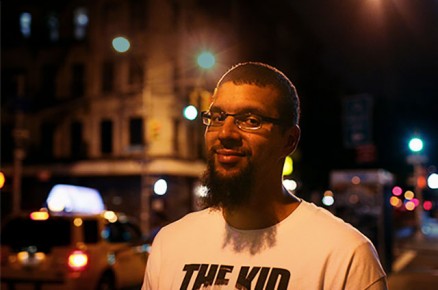Shawn Allen spent four and a half years working at Rockstar Games, one of the videogame industry’s major brand names. But after working on countless trailers and voiceovers for smash titles like Grand Theft Auto 4 he grew tired of seeing a particular narrative – in the offices he worked, he was one of an extremely small group of racial minorities. He was even more tired of seeing the representations of Black and Latino stories in the games he worked on being nothing but stereotypes.
This is, of course, despite the fact that Black and Latino consumers make up a considerable share of the gamer market. So Allen left the company in pursuit of his dream – creating his own independent game. And that’s exactly what he’s doing.
Set to release in 2015, Treachery in Beatdown City is a fictional story complete with ninja dragon terrorists and a socially conscious storyline. “I grew up in a very racialized New York and I want to bring a bit of that to the game,” explains Allen. “Like the ninja dragon terrorists, it’s like what are terrorists, what are ninjas? The pop culture icon of a terrorist, like what is that? … Because if a white guy runs around he’s a gunmen, if a brown person has a gun he’s a terrorist. We live in this world where there’s all these problems, so I’m trying to have this over the top ’80s, ’90s action story that puts in these little bits of social commentary.”
HOW DO YOU TACKLE TOPICS LIKE GENTRIFICATION AND RACE WHILE STILL MAKING THE GAME ENGAGING? We just try to make these punchy few dialogues. And people usually laugh. People like funny dialogue that’s snappy. It’s a little difficult, sometimes you deal with the idea of whether or not they’re laughing at the joke for the wrong reason, like they don’t get it, but that’s something to deal with. The whole thing with the game is really gameplay first, but this other stuff’s around it. And realistically you can ignore all of it and still enjoy the game. I feel like it’s not something that people would want to ignore.
IN TERMS OF YOUR OWN PERSONAL JOURNEY, WHAT WOULD YOU SAY SOME OF THE MOST ENJOYABLE THINGS ARE ABOUT BEING A GAME DESIGNER? Seeing people like your game is like the biggest thing, it’s very humbling. I hope that people are like I really like your game and I’ve had so many people say that, it blows me away to see something creative that I made that’s not finished, that’s not coming out for a bit, but they’ll sit there for a half an hour and they really they got something out of it. They felt something themselves, they like the art. It’s this really specific thing… It’s just really like having people play your [game] and then give you feedback – the fact that people like it is the biggest thing. If people hated it, I don’t know what I would do, so it’s like I have this huge humbling moment every time someone says I like your game, but at the same time that’s the thing that keeps me going.
ON THE FLIPSIDE, WHAT WOULD YOU SAY ARE SOME OF THE MOST CHALLENGING ASPECTS OF BEING A GAME DEVELOPER ARE? It’s just very hard… like I do 90 per cent of the work. I have a programmer, he programs the game and makes the game, but I design the game, I do all the art for in the game, my wife does some of the production art like the concept art and the cover art. I’m going to conferences; I’m talking to people about all the business elements with all the graphic design. It is very overwhelming taking on a whole business… I’m not working for a company; I’m working for me. So if I don’t get this game out, that’s my money. And that’s the biggest stress. It affects everything in life, just running a business.
You are not special if all you have is ideas. You’ve got to be a person who has done something towards those ideas too and then maybe people will come towards you.
I THINK THERE’S A LOT OF PEOPLE WHO ARE PROBABLY WORKING AT MAINSTREAM GAMING COMPANIES, NOTICING WHAT YOU DID ABOUT THE LACK OF DIVERSITY, WHO AREN’T ABLE TO BREAK OUT ON THEIR OWN LIKE YOU DID – IT IS NOT EASY. WHAT ADVICE DO YOU HAVE FOR THEM? It was all very serendipitous and it wasn’t an easy thing. I didn’t even have much savings leaving, it was all very scary. I’d just say start making something now, and while you’re working try to balance your life and work, but also if you think you want to make a videogame, go out there, start looking for stuff and just start doing it. Do it in your spare time. Look up tutorials, remake the tutorial, remake every tutorial that’s out there. Don’t even do your own thing yet… Remake a tutorial and change five things about it. Now you’ve mod’ed the game. You’ve made your own rules. Do very simple things like that… It’s all about the hustle. If you’re doing one aspect of the game, you’re going to have to figure that out. The one thing I’d say is don’t try to be an ideas person, because ideas people are not valuable, ideas are not valuable. Everyone has ideas. People who program, people who make music, they all have ideas for their key game. You are not special if all you have is ideas. You’ve got to be a person who has done something towards those ideas too and then maybe people will come towards you.




Comments are closed.